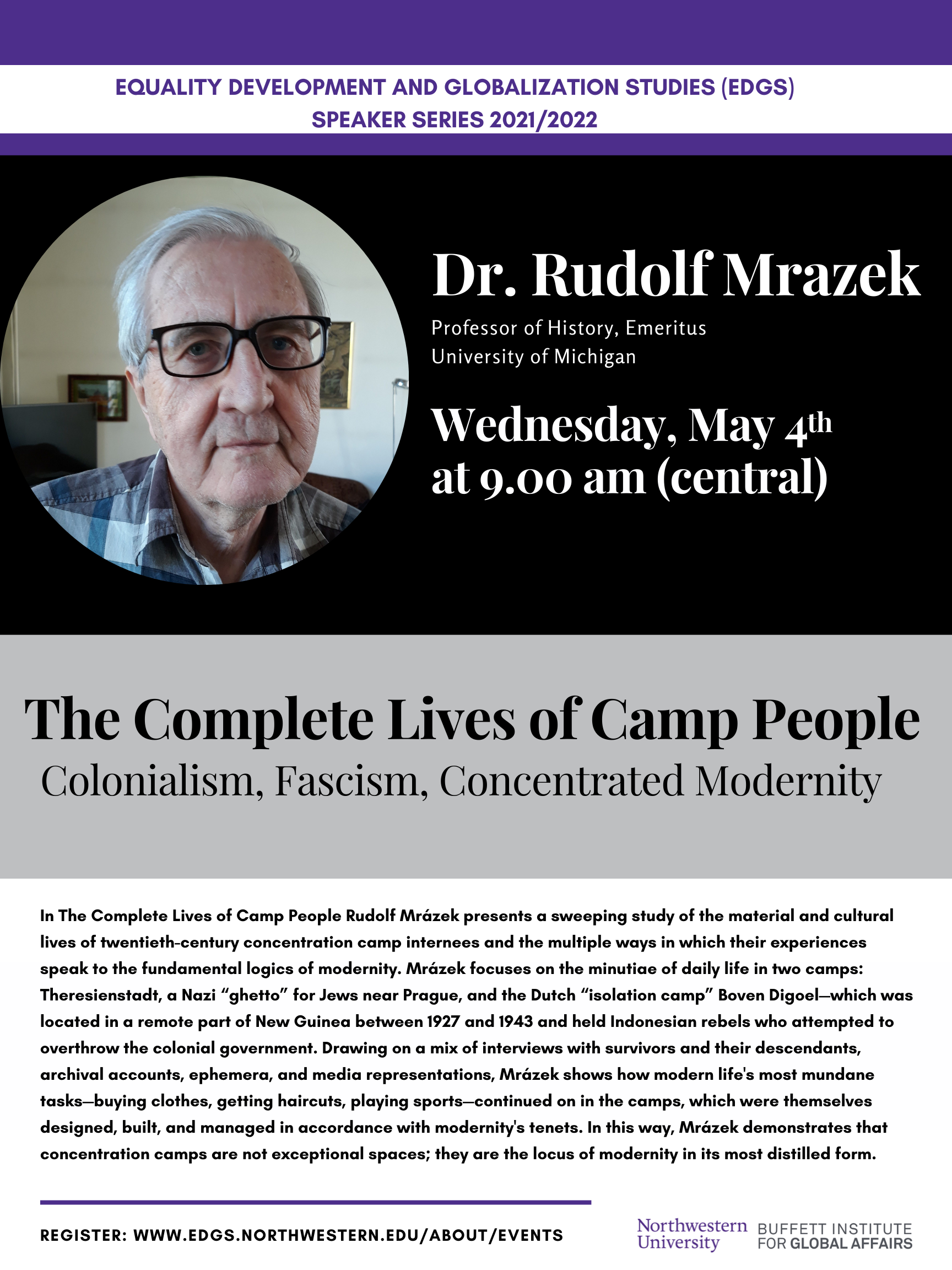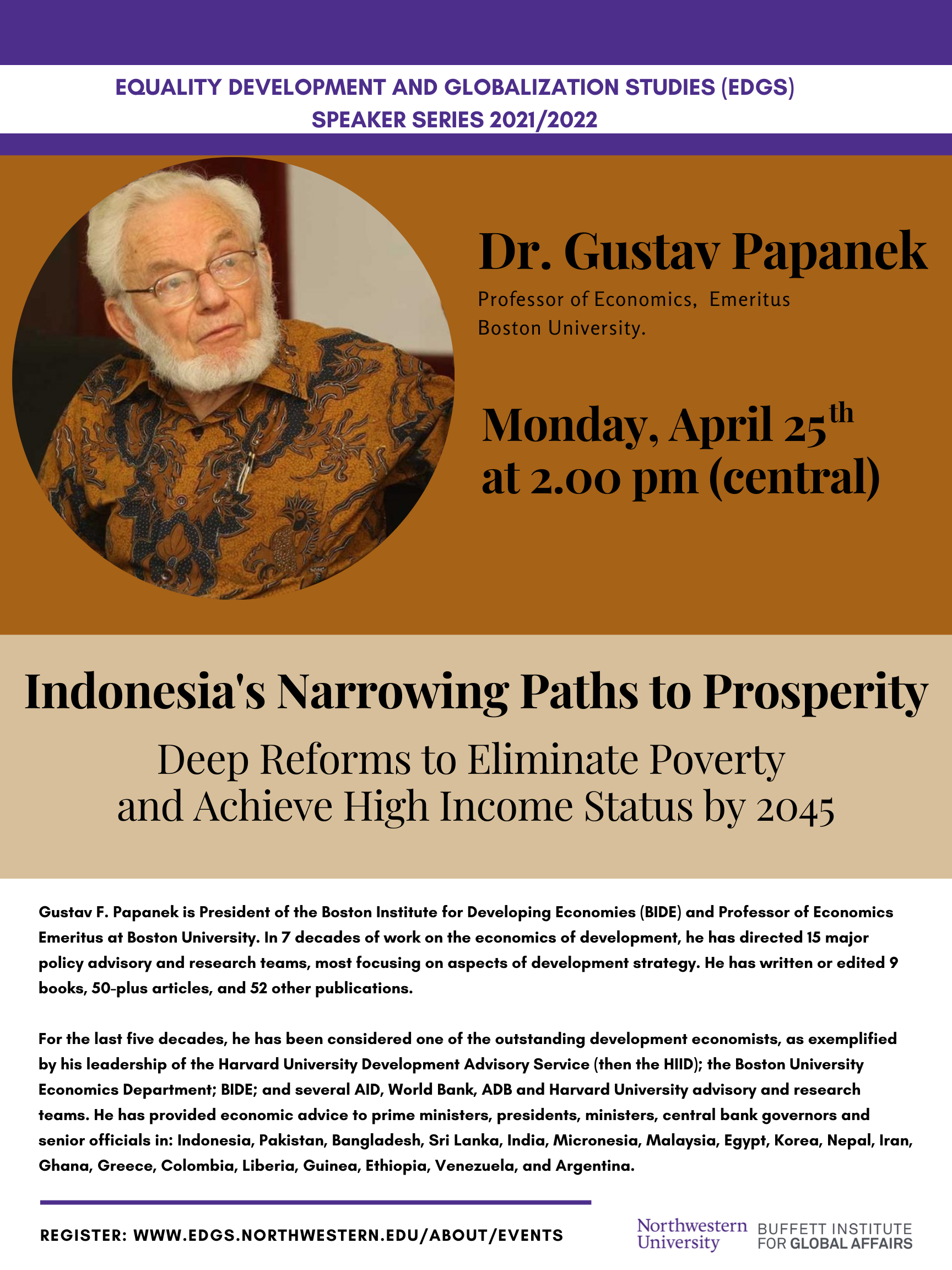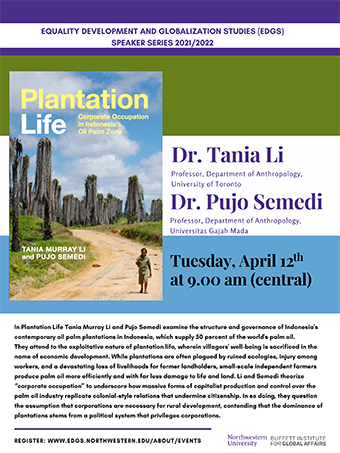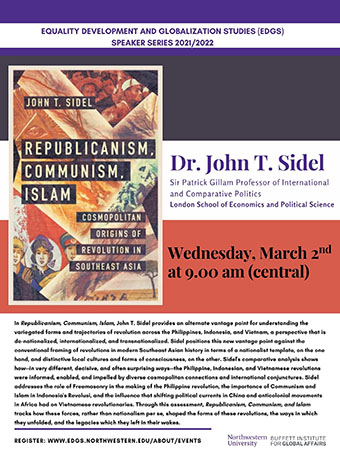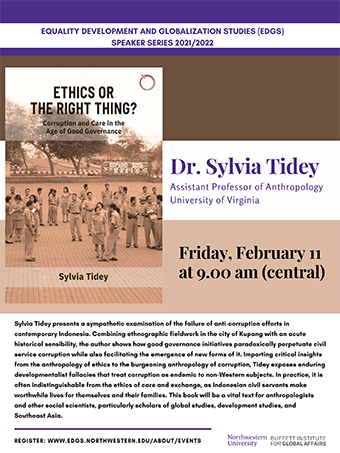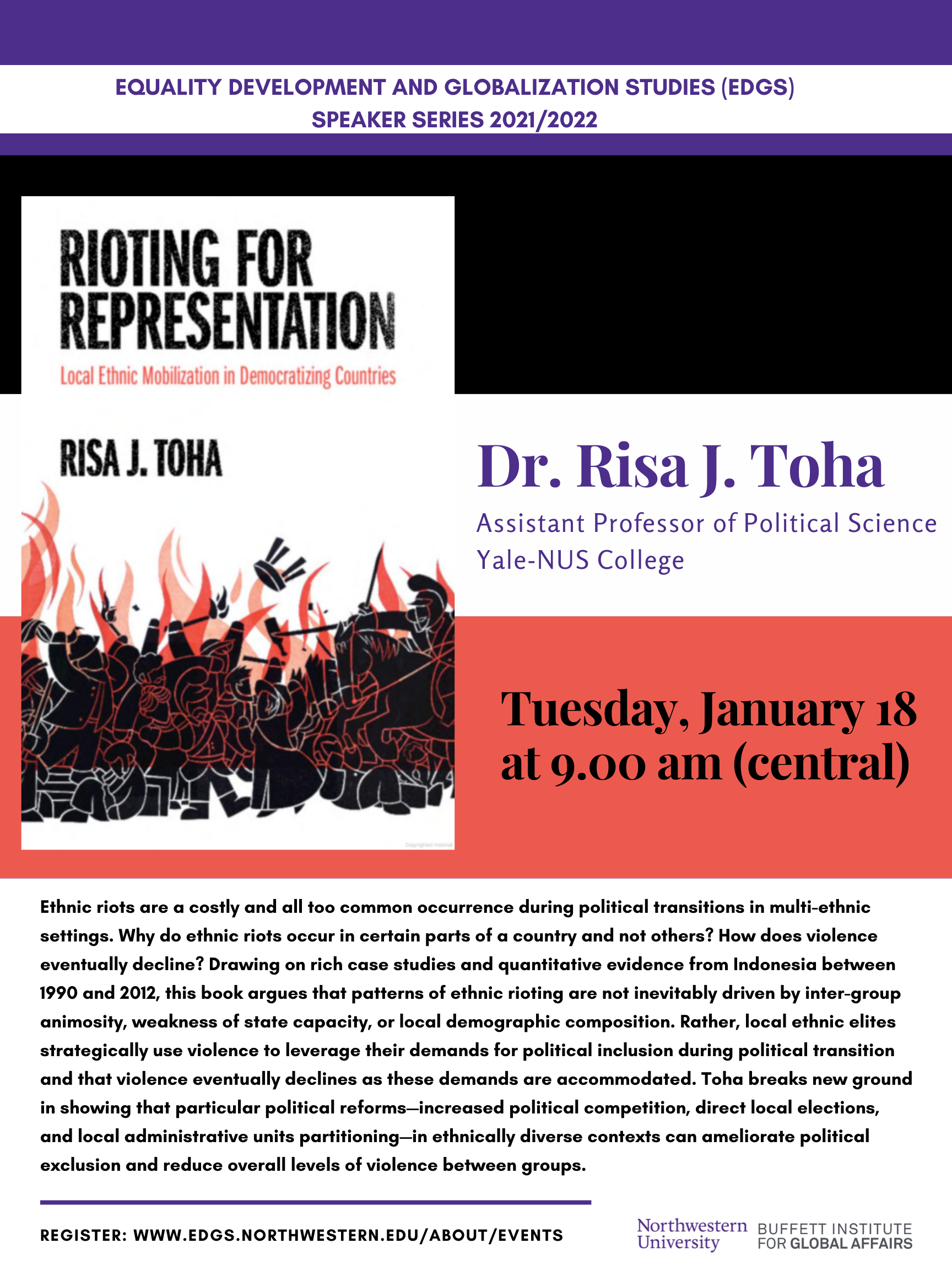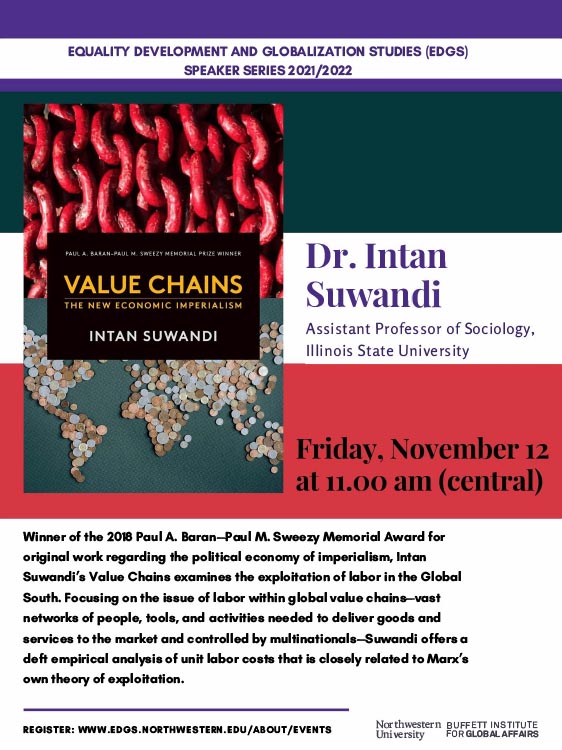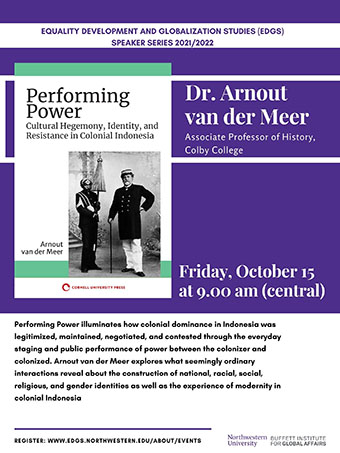- Home
- EDGS 2021-22 Speaker Series
EDGS 2021-22 Speaker Series
Throughout the 2021/2022 academic year, the series will explore three main topics: 1) Political Islam, 2) Colonialism and Imperialism, and 3) Remaking Modernity in Southeast Asia. In each lecture, the speaker will discuss their recently published book. Students will have the chance to engage with the author after each lecture.
Rudolf Mrázek
Professor Emeritus of History, University of Michigan
May 4, 2022
The Complete Lives of Camp People: Colonialism, Fascism, Concentrated Modernity
Watch Dr. Mrázek 's talk
Gustav Papanek
Professor Emeritus of Economics, Boston University
April 25, 2022
Indonesia's Narrowing Paths to Prosperity: Deep Reforms to Eliminate Poverty and Achieve High Income Status by 2045
Watch Dr. Papanek's talk
For the last five decades, he has been considered one of the outstanding development economists, as exemplified by his leadership of the Harvard University Development Advisory Service (then the HIID); BIDE; and several AID, World Bank, ADB and Harvard University advisory and research teams. He has provided economic advice to prime ministers, presidents, ministers, central bank governors and senior officials in: Indonesia, Pakistan, Bangladesh, Sri Lanka, India, Micronesia, Malaysia, Egypt, Korea, Nepal, Iran, Ghana, Greece, Colombia, Liberia, Guinea, Ethiopia, Venezuela, and Argentina.Tania Li and Pujo Semedi
Professor, Department of Anthropology, University of Toronto and Professor, Department of Anthropology, Universitas Gajah Mada
April 12, 2022
Plantation Life: Corporate Occupation in Indonesia's Oil Palm Zone
Watch Dr. Li and Dr. Semedi's talk
John T. Sidel
Sir Patrick Gillam Professor of International and Comparative Politics, London School of Economics and Political Science
March 2, 2022
Republicanism, Communism, Islam: Cosmopolitan Origins of Revolution in Southeast Asia
Watch Dr. Sidel's talk
Sylvia Tidey
Assistant Professor of Anthropology, University of Virginia
February 11, 2002
Ethics or the Right Thing? Corruption and Care in the Age of Good Governance
Watch Dr. Tidey's talk
Risa J. Toha
Assistant Professor of Political Science, Yale-NUS College, Singapore
January 18, 2022
Rioting for Representation: Local Ethnic Mobilization in Democratizing Countries
Watch Dr. Toha's talk
Intan Suwandi
Assistant Professor of Sociology, Illinois State University
November 12, 2021
Value Chains: The New Economic Imperialism
Watch Dr. Suwandi's talk
Arnout van der Meer
Associate Professor of History, Colby College
October 15, 2021
Performing Power: Cultural Hegemony, Identity, and Resistance in Colonial Indonesia
Watch Dr. van der Meer's talk
Performing Power illuminates how colonial dominance in Indonesia was legitimized, maintained, negotiated, and contested through the everyday staging and public performance of power between the colonizer and colonized. Dr. van der Meer explores what seemingly ordinary interactions reveal about the construction of national, racial, social, religious, and gender identities as well as the experience of modernity in colonial Indonesia
